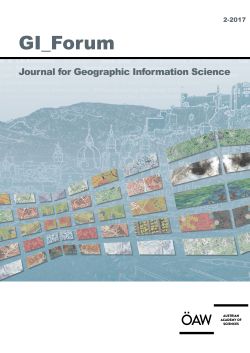
GI_Forum 2017, Volume 5, Issue 2, pp. 3-12, 2017/12/13
Journal for Geographic Information Science

This paper deals with the application of geomedia that are in everyday use, quoting two highly political mapping examples. These publicly accessible digital maps addressing the current refugee situation, its reception and instrumentalization in Germany are used to provide a vivid example of a practical application of Spatial Citizenship. This paper presents the theoretical framework of Spatial Citizenship. After examining questions which arise from an analysis of the maps, this framework is discussed and extended, especially with regards to the social embeddedness of its basic principles of fundamental human rights and democratic negotiation. The discussion reveals the links between approaches from social geography and central aspects of citizenship education. Finally, the educational implications of this extension of the Spatial Citizenship approach are discussed while presenting a practical example.
Keywords: Spatial Citizenship, geography education, racism, critical cartography, geomedia